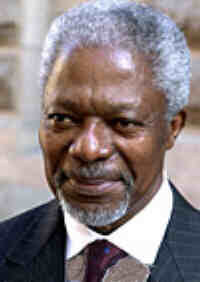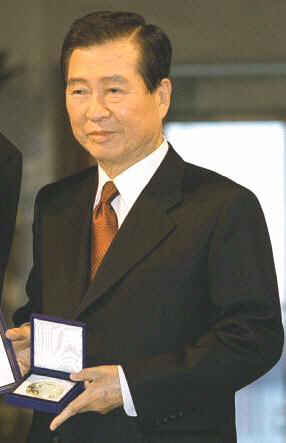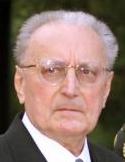1947 Declaración de independencia de Birmania.
1941 Japanese troops land on northern Luzon in the Philippines,
three days after the attack on Pearl Harbor.
1940
Hitler firma la directiva Atila, plan de invasión del sur de Francia.
1936 Britain's King Edward VIII abdicated to marry American
divorcee Wallis Warfield Simpson. His brother succeeded to the throne as
King George VI. . — Abdicación de Eduardo VIII, quien anuncia su intención
de casarse con Wallis Simpson.
1932 Thailand receives
its 1st constitution
1932 Los neurofisiólogos británicos
Charles Scott Sherrington y Edgar Douglas Adrian reciben el Premio Nobel
de medicina por sus descubrimientos sobre la función de las neuronas.
1931 Jane
Addams, sociologist and International President of the League
for Peace and Freedom, becomes the first American woman to be a co-recipient
of the Nobel
Peace Prize 1931. (jointly with Nicholas
Murray Butler, President of Columbia University and promoter of the
Briand-Kellogg Pact) [Jane Addams, one of the Heroines
of Peace]
1922 Entrega del Premio Nobel de Literatura
al español Jacinto Benavente y Martívez y el de Física al alemán
Albert Einstein.
1920 US President Thomas
Woodrow Wilson, 64, founder of the League of Nations, receives the 1919
Nobel Peace Prize
1919 El escritor francés Marcel
Proust gana el Premio Goncourt por su novela A l'ombre des jeunes filles
en fleurs.
1915 The 1'000'000th Model
T automobile rolls off the assembly line by Ford Motor Co.
1913 Former US Secretary of State Elihu
Root (born 15 Feb 1845), originator of various treaties of
arbritation,
is awarded the 1912 Nobel Peace Prize. (which had been
postponed one year) [Root's
Nobel Lecture]
1911 Marie Curie recibe el Premio
Nobel de Química.
1911 Calbraith Rogers completes
the first crossing of US by airplane (84 days).
1906 US President Theodore
Roosevelt , collaborator in various peace treaties, becomes
the first US national to be awarded
the Nobel Peace Prize, for helping mediate an end to
the Russo-Japanese War. [TR's
Nobel Lecture] — El español Santiago Ramón y Cajal y el italiano
Camillo Golgi reciben el Premio Nobel de Medicina, y el italiano Giossue
Carducci el de Literatura.
1904 El español José
Echegaray Eizaguirre y el francés Fréderic Mistral reciben el Premio Nobel
de Literatura.
1903 Pierre y Marie Curie y Antoine
Henri Becquerel reciben el Premio Nobel de Física por sus estudios sobre
la radiactividad.
1901 First Nobel Prizes.
The first Nobel Prizes are awarded
in Stockholm, Sweden, in the fields of physics, chemistry, medicine,
literature, and peace. The ceremony came on the fifth anniversary
of the death of Alfred Nobel, the Swedish inventor of dynamite and
other high explosives. In his will, Nobel directed that the bulk of
his vast fortune be placed in a fund in which the interest would be
"annually distributed in the form of prizes to those who, during the
preceding year, shall have conferred the greatest benefit on mankind."
Although Nobel offered no public reason for his creation of the prizes,
it is widely believed that he did so out of moral regret over the
increasingly lethal uses of his inventions in war.
The
Nobel Prize in Physics 1901 is awarded to Wilhelm
Conrad Röntgen, 56, "in recognition of the extraordinary
services he has rendered by the discovery of the remarkable rays subsequently
named after him"
The
Nobel Prize in Chemistry 1901 is awarded to Jacobus
Henricus van 't Hoff, 49, "in recognition of the extraordinary
services he has rendered by the discovery of the laws of chemical
dynamics and osmotic pressure in solutions"
The
Nobel Prize in Physiology or Medicine 1901 is
awarded to Emil
Adolf von Behring, 47, "for his work on serum therapy,
especially its application against diphtheria, by which he has opened
a new road in the domain of medical science and thereby placed in
the hands of the physician a victorious weapon against illness and
deaths" [Behring's
Nobel Lecture] [Emil
von Behring: The Founder of Serum Therapy]
The
Nobel Prize in Literature 1901 is awarded to Sully
Prudhomme, 62, “in special recognition of his poetic
composition, which gives evidence of lofty idealism, artistic perfection
and a rare combination of the qualitites of both heart and intellect.”
The Nobel Peace Prize
1901 is awarded to Jean
Henri Dunant, 73, and Frédéric
Passy, 79, respectively Founder of the International
Committee of the Red Cross, and Founder and President of the first
French peace society.
Alfred
Bernhard Nobel was born in Stockholm on 21 October 1833, and four
years later his family moved to Russia. His father ran a successful
St. Petersburg factory that built explosive mines and other military
equipment. Educated in Russia, Paris, and the United States, Alfred
Nobel proved a brilliant chemist. When his father's business faltered
after the end of the Crimean War, Nobel returned to Sweden and set
up a laboratory to experiment with explosives. In 1863, he invented
a way to control the detonation of nitroglycerin, a highly volatile
liquid that had been recently discovered but was previously regarded
as too dangerous for use. Two years later, Nobel invented the blasting
cap, an improved detonator that inaugurated the modern use of high
explosives. Previously, the most dependable explosive was black powder,
a form of gunpowder.
Nitroglycerin
remained dangerous, however, and in 1864 Nobel's nitroglycerin factory
blew up, killing his younger brother and several other people. Searching
for a safer explosive, Nobel discovered in 1867 that the combination
of nitroglycerin and a porous substance called kieselguhr produced
a highly explosive mixture that was much safer to handle and use.
Nobel christened his invention "dynamite," for the Greek word dynamis,
meaning "power." Securing patents on dynamite, Nobel acquired a fortune
as humanity put his invention to use in construction and warfare.
In 1875, Nobel created a more
powerful form of dynamite, blasting gelatin, and in 1887 introduced
ballistite, a smokeless nitroglycerin powder. Around that time, one
of Nobel's brothers died in France, and French newspapers printed
obituaries in which they mistook him for Alfred. One headline read,
"The merchant of death is dead." Alfred Nobel in fact had pacifist
tendencies and in his later years apparently developed strong misgivings
about the impact of his inventions on the world.
After he died in San Remo, Italy, on 10 December 1896, the majority
of his estate went toward the creation of prizes to be given annually
in the fields of physics, chemistry, medicine, literature, and peace.
The portion of his will establishing the Nobel Peace Prize read, "[one
award shall be given] to the person who has done the most or best
work for fraternity among nations, for the abolition or reduction
of standing armies, and for the holding and promotion of peace congresses."
Exactly five years after his death, the first Nobel awards were presented.
Today, the Nobel Prizes are
regarded as the most prestigious awards in the world in their various
fields. Notable winners have included Marie Curie, Theodore Roosevelt,
Albert Einstein, George Bernard Shaw, Winston Churchill, Ernest Hemingway,
Martin Luther King, Jr., the Dalai Lama, Mikhail Gorbachev, and Nelson
Mandela. Multiple leaders and organizations sometimes receive the
Nobel Peace Prize, and multiple researchers often share the scientific
awards for their joint discoveries. In 1968, a Nobel Memorial Prize
in Economic Science was established by the Swedish national bank,
Sveriges Riksbank, and first awarded in 1969.
The Royal Swedish Academy of Sciences decides the prizes in physics,
chemistry, and economic science; the Swedish Royal Caroline Medico-Surgical
Institute determines the physiology or medicine award; the Swedish
Academy chooses literature; and a committee elected by the Norwegian
parliament awards the peace prize. The Nobel Prizes are still presented
annually on 10 December, the anniversary of Nobel's death.
In 1901, the
amount of each prize was 150'782 Swedish Crowns, and then it fell
below that, reaching a low of 114'935 SC in 1923, until recovering
to 156'939 SC in 1928. It fell again, to a low of 121'333 SC in 1945.
In 1953 the Foundation's investment rules were changed with a resulting
appreciation of the prize, which reached one million Swedish Crowns
in 1981. In 2001, each Nobel Prize carried a cash prize of 10 million
Swedish Crowns ($950'000). The laureates also receive a gold medal
and an individually designed artistic diploma.
LIST OF THE NOBEL LAUREATES 1901-2001 (with links to their biographies
and achievements — Economics: 1969-2001)
PHYSICS
— CHEMISTRY
— MEDICINE
— LITERATURE
— PEACE
— ECONOMICS |
1898 The Spanish-American War
ends
In France,
the Treaty of Paris is signed, ending the Spanish-American war and
granting the United States its first overseas empire. The Spanish-American
War erupted in April of 1898, after the US demanded the withdrawal
of Spain from Cuba. Spain's brutal response to Cuban rebellion against
Spanish rule, the mysterious explosion of the US battleship Maine
in Havana harbor, and the heavy losses to US investment caused by
the conflict, are factors that all intensified US feeling against
Spain.
The Spanish responded
to the US demand for withdrawal with a declaration of war on 24 April.
On week later, the US Navy under Admiral George Dewey won a decisive
victory over the Spanish fleet at Manila Bay in the Philippines, and
on 11 June, six hundred US marines landed at Guantanamo, Cuba. In
Cuba, US forces, featuring the Theodore Roosevelt-led cavalry regiment
known as the "Rough Riders," triumphed at the battles of El Caney
and San Juan Heights, and on 03 July, the remaining Spanish fleet
was destroyed near Santiago de Cuba. On 17 July, Santiago de Cuba
and nearly 25'000 Spanish soldiers surrendered, and the war had effectively
ended.
An armistice was signed
on 12 August, and representatives were sent to Paris, France, to arrange
peace. The Spanish Empire was virtually dissolved by the Treaty of
Paris and an American empire established. Puerto Rico, Guam, and the
Philippines were ceded to the United States, and Cuba became a US
protectorate. Hawaii, an independent republic run by American expatriates
since 1894, was also formally annexed during the Spanish-American
War.
The Spanish-American War
had its origins in the rebellion against Spanish rule that began in
Cuba in 1895. The repressive measures that Spain took to suppress
the guerrilla war, such as herding Cuba's rural population into disease-ridden
garrison towns, were graphically portrayed in US newspapers and enflamed
public opinion. In January 1898, violence in Havana led US authorities
to order the battleship USS Maine to the city's port to protect American
citizens. On 15 February, a massive explosion of unknown origin
sank the Maine in Havana harbor, killing 260 of the 400 American crewmembers
aboard. An official US Naval Court of Inquiry ruled in March, without
much evidence, that the ship was blown up by a mine, but it did not
directly place the blame on Spain. Much of Congress and a majority
of the American public expressed little doubt that Spain was responsible,
however, and called for a declaration of war. In April, the US Congress
prepared for war, adopting joint congressional resolutions demanding
a Spanish withdrawal from Cuba and authorizing President William McKinley
to use force. On 23 April, President McKinley asked for 125'000
volunteers to fight against Spain. The next day, Spain issued a declaration
of war. The United States declared war on 25 April. On 01 May,
the US Asiatic Squadron under Commodore George Dewey destroyed the
Spanish Pacific fleet at Manila Bay in the first battle of the Spanish-American
War. Dewey's decisive victory cleared the way for the US occupation
of Manila in August and the eventual transfer of the Philippines from
Spanish to American control. On the other side of the world, a Spanish
fleet docked in Cuba's Santiago harbor in May after racing across
the Atlantic from Spain. A superior US naval force arrived soon after
and blockaded the harbor entrance. In June, the US Army Fifth Corps
landed in Cuba with the aim of marching to Santiago and launching
a coordinated land and sea assault on the Spanish stronghold. Included
among the US ground troops were the Theodore Roosevelt-led "Rough
Riders," a collection of western cowboys and eastern blue bloods officially
known as the First US Voluntary Cavalry. On 01 July, the Americans
won the Battle of San Juan Hill, and the next day they began a siege
of Santiago. On 03 July, the Spanish fleet was destroyed off
Santiago by US warships under Admiral William Sampson, and on 17 July
the Spanish surrendered the city — and thus Cuba — to the
Americans. In Puerto Rico, Spanish forces likewise crumbled in the
face of superior US forces, and on 12 August an armistice was
signed between Spain and the United States, ending the brief and one-sided
conflict. On 10 December, the Treaty of Paris officially ended
the Spanish-American War. The once-proud Spanish empire was virtually
dissolved as the United States took over much of Spain's overseas
holdings. Puerto Rico and Guam were ceded to the United States, the
Philippines were bought for $20 million, and Cuba became a US protectorate.
Philippine insurgents who fought against Spanish rule during the war
immediately turned their guns against the new occupiers, and 10 times
more US troops died suppressing the Philippines than in defeating
Spain. |
1873 Le maréchal Bazaine
condamné à mort
Le duc d'Aumale préside le tribunal militaire rend en ce jour, à 20
h 55 précisément, son verdict : la mort. Il ne saurait être pardonné
au maréchal Bazaine la honte d'avoir capitulé sans conditions à Metz
le 20 octobre 1870, livrant ainsi aux Prussiens: 180'000 hommes et
1400 canons. A Bazaine, qui plaidait en déclarant "Que pouvais-je
faire ? Les devoirs militaires ne sont stricts que quand il y a un
gouvernement légal, mais non pas quand on est en face d'un gouvernement
insurrectionnel. Il ne restait plus rien", le duc d'Aumale a rétorqué
: " Il restait la France, monsieur le maréchal.” |
1869 Women's suffrage granted
in Wyoming Territory
Governor John Campbell of the Wyoming Territory signs into the law
the first legislation in American history explicitly granting women
the right to vote. After Wyoming was formally organized as a US territory
in early 1869, Esther Hobart Morris, a native of New York, emigrated
to South Pass, Wyoming, with her family. Morris, who had suffered
under discriminatory property laws after her first husband died, became
an advocate of women's suffrage. Before the first territorial elections
were held, she met with local leader William Bright, who was running
for a seat in the legislature, and persuaded him to introduce a women's
suffrage bill if he prevailed. Bright was elected as a Democrat from
South Pass, and true to his promise, he introduced the bill. Many
of Wyoming's new legislators treated the measure lightheartedly, joking
that if it were approved, perhaps more women would move to the territory.
The bill was passed by a two-to-one margin, and on December 10, to
the horror of several of these lawmakers, Governor John Campbell signed
it into law. Three months later, Esther Hobart Morris is appointed
America's first female justice of the peace in South Pass City, and
in Laramie, the first women jurors are summoned to duty. In 1889,
Wyoming voters approve the first constitution in the world granting
full voting rights to women, and in 1890, Wyoming is admitted into
the Union as the first suffrage state. |
|
 2001
The Nobel Prizes of 2001 are awarded
2001
The Nobel Prizes of 2001 are awarded 2000
The Nobel Prizes of 2000 are awarded
2000
The Nobel Prizes of 2000 are awarded 1999
Franjo Tudjman, 77, [990927 photo] Croatian
President since 1990, probably from stomach cancer, at 23:15 (22:15
UT) after a six-week hospitalization.
1999
Franjo Tudjman, 77, [990927 photo] Croatian
President since 1990, probably from stomach cancer, at 23:15 (22:15
UT) after a six-week hospitalization. 